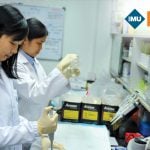The healthcare sector has undergone a tremendous transformation with very significant changes in its priorities. There is an increase reliance on digital healthcare tools, broader use of telehealth, growing focus on public health and a shift in the healthcare model post pandemic. Traditionally medicine has been illness-focused and this has now taken a different lens towards prevention and wellness. The challenges of the new normal are now being addressed using digital tools. Remote patient monitoring right up to implementation of various kind of treatment intervention across disciplines is now possible. In fact, widespread acceptance of telehealth is the single biggest impact the pandemic has had on healthcare. Likewise, artificial intelligence is gaining a significant reputation for its accuracy in diagnosing and managing a plethora of diseases and maintaining health.
Considering this, are our healthcare professionals adequately prepared to meet the emerging standards and challenges within our evolving healthcare landscape?
In the pursuit to address the ever-challenging non-communicable diseases, and the rising mental health issues, how do we make our healthcare professionals ready for the future? For healthcare professionals to be equipped for practice in the 21st century and to adapt and face the evolving situations and challenges, the health professions educators play a pivotal role.
The Health Professions Education Programme equips educators with the necessary knowledge and skills to effectively educate healthcare professionals, ensuring they are up-to-date and aligned with the current demands of the healthcare industry. The ability to learn throughout their career and adapt to evolving situations is important.
Likewise, Interprofessional education is a highly valued aspect in adapting to the current collaborative healthcare model. With health issues becoming increasingly complex, a multidisciplinary approach is essential. Therefore, it is imperative to imbue graduates with this mindset from the onset of their educational journey.
Health professions education grounded in the best evidence-based practices for teaching and learning enhances programmes by fostering critical thinking and problem-solving skills, which are essential for navigating the complexities of the modern healthcare environment.
Within Health Professions Education Programmes, significant emphasis is placed on assessment as a foundational element in fostering competence. The programmes guide educators in deploying a variety of assessment methods, which are vital for equipping graduates with the skills and knowledge needed for their professional journey. Technology integration in training the healthcare professionals to stay current and relevant in the current digitalised healthcare landscape is paramount.
IMU's Postgraduate Programmes in Health Professions Education
The International Medical University offers postgraduate courses in Health Professions Education (HPE) at the Postgraduate Certificate, Postgraduate Diploma, Master and PhD levels. The programme offers modules which equip the candidates with the contemporary knowledge and skills of 21st-century, with state-of-the-art teaching, learning and assessment principles and methods. The programmes are designed to actively engage students with both local and internationally renowned faculties, expert in their discipline.
At the same time, the Postgraduate Certificate in Health Professions Education via Open Distance Learning (ODL) allows flexibility for candidates to enrol and attain the qualification. In addition, the Micro Credential Course on the Roles and Needs of 21st Century Health Professions Educators, is offered as an introduction to the Postgraduate Programmes in Health Professions Education.

We invite all educators to join in this exciting and transformative journey!









